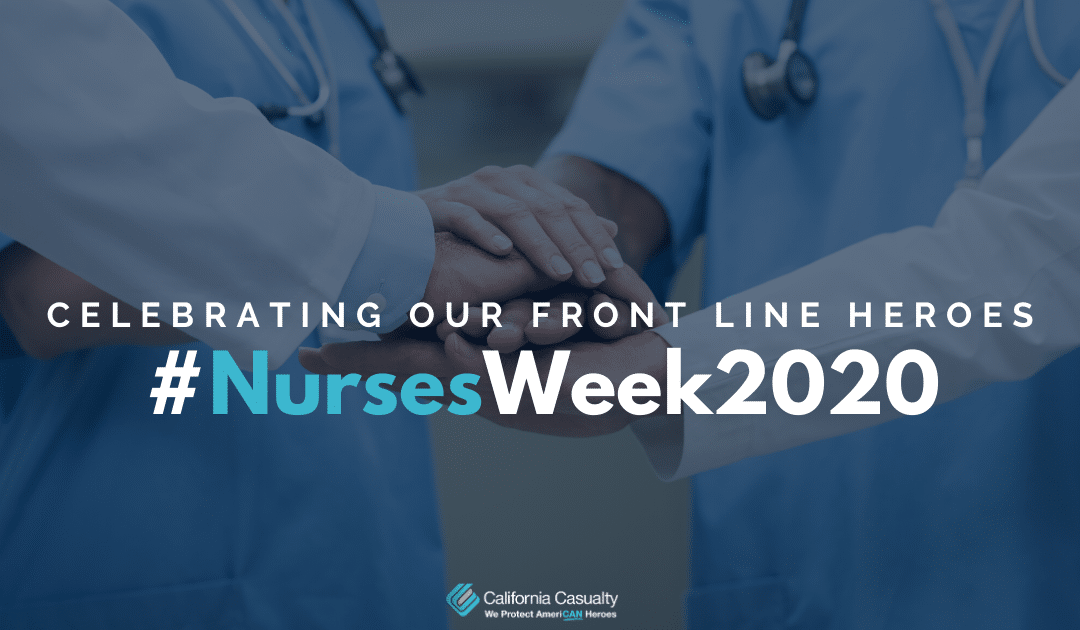Even before the coronavirus began its swift spread across the globe, the World Health Organization had declared 2020 the ‘International Year of the Nurse and Midwife,’ and the American Nurses Association (ANA) named it ‘Year of the Nurse.’ The annual observance of Nurses Week—from May 6-12—has been extended from one week to the entire month.
These designations underscore something we’re acutely aware of these days: Nurses are an incredibly important pillar of our health system, and we rely on them every day for compassionate, skilled, expert healthcare.
We also trust them immensely: For 18 years in a row, the vast majority of Americans have rated nurses as the most honest and ethical of professions.
The Many Ways Nurses Keep Us Healthy
Most people know nurses as the trusted health professional they see for health exams, emergency visits, chronic conditions, and life events such as maternity and cancer care. However, many don’t know the vast range of roles nurses play throughout the health care system—or that, numbering almost 4 million, they comprise the largest segment of health care workers in America.
This annual observance celebrating nurses is a great opportunity to highlight some of those many roles that nurses play in advancing the health and well-being of individuals, communities, and our country at large.
Direct patient care — Every day across the country, nurses care for and treat patients in a range of care settings. Although there’s no such thing as a “typical” day for a nurse, their job entails administering medications, managing IVs and other interventions, observing and recording patients’ conditions, advocating for and educating patients and their families, and providing advice, guidance and emotional support. They work in inpatient care settings, primary care, prenatal care, schools and universities, outpatient settings, palliative and hospice care, skilled nursing facilities, community clinics, and more.
Research — Nurse researchers are scientists who design and conduct studies looking at health, illness, and healthcare, aimed at improving health outcomes and delivery of care. They work in hospitals, medical clinics, and research laboratories, as well as in academic settings where they often teach.
Informatics — In this unique field, nurses blend nursing science with expertise in information technology and analytics to improve nursing practice and patient safety. Nurse informaticists are health tech innovators who create and maintain the digital health systems used by consumers, medical professionals, and public health officials.
Population Health — Population health focuses on the ways that health systems, organizations, and local agencies collaborate to drive better health outcomes at the community level. Nurses, with so much time and experience in direct patient care, readily see the patterns of health behaviors and disparities. They leverage this expertise to positively influence their patients and communities’ health in roles such as health coaches and educators, care coordinators, care navigators, and care managers.
Administration and leadership — As leaders and executives, nurses are advancing improvements to healthcare at the highest levels. Bringing their clinical expertise and management experience to bear, they are transforming care delivery and improving patient safety through their leadership roles within healthcare facilities, hospitals, institutions, government agencies, non-profit organizations, health systems, and private companies.
As the nation honors and thanks nurses throughout the month of May (and beyond!), join the movement and thank the nurses in your life for their many contributions to our health, well-being, and safety. For ideas on how to help them out during this time of crisis, check out these tips.
This article is furnished by California Casualty, providing auto and home insurance to educators, law enforcement officers, firefighters, and nurses. Get a quote at 1.866.704.8614 or www.calcas.com.
- Graduation – When to Remove Your Child from Your Auto Policy - May 18, 2023
- How to Prevent Catalytic Converter Theft - May 17, 2023
- How Much Does Home Insurance Cost? - May 17, 2023

